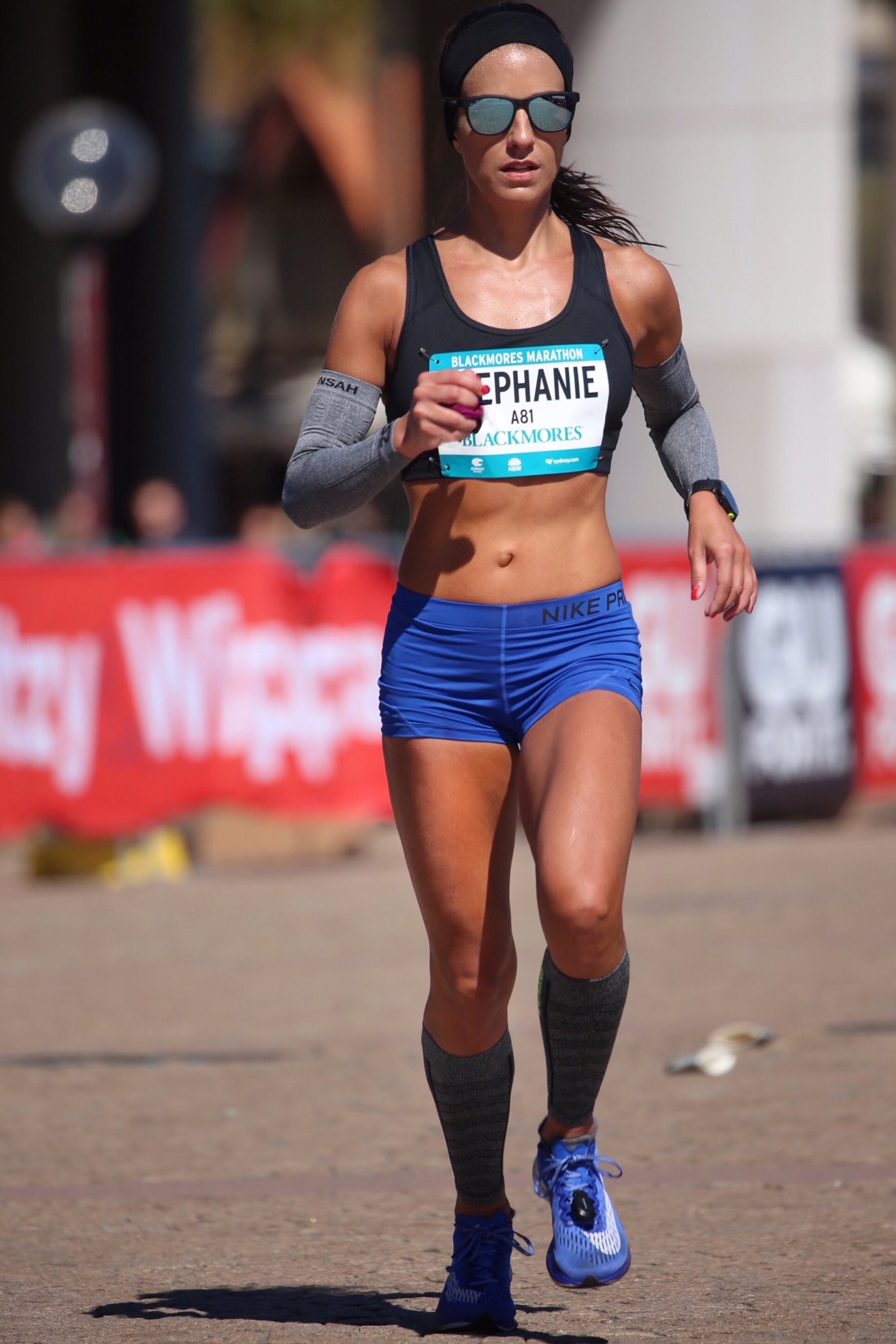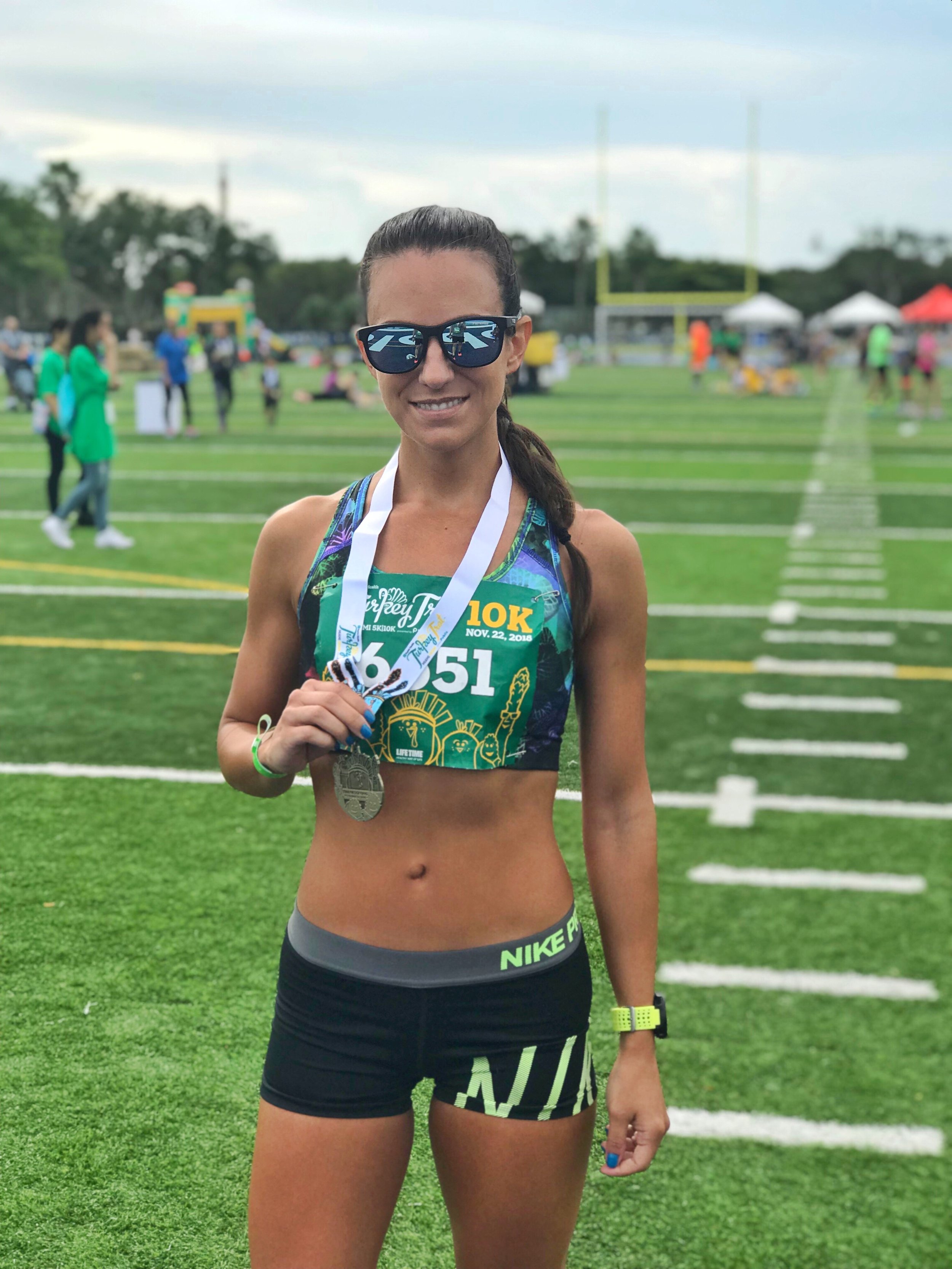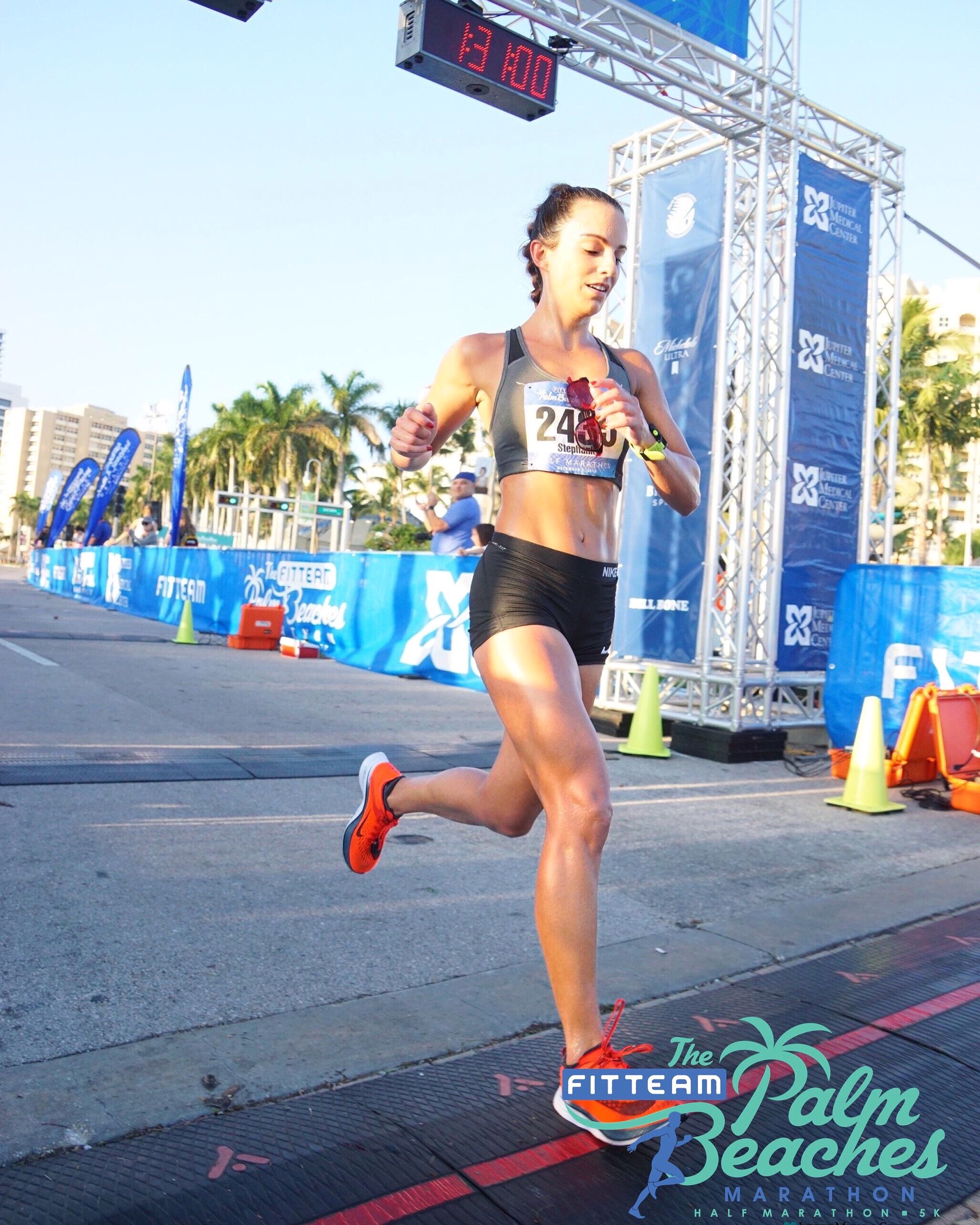Racing season is the most exciting time of the year for runners. As nervous as we get at the start line, we are anxious to sign up for another race just seconds after crossing the finish line. At least that’s what happens to me! I spent the last three years training my butt off to PR at every race I signed up for. I had an incredible start after beginning a serious training program in 2016. I dropped 31 minutes off of my previous PR in the 2017 Miami Marathon and 11 minutes off my Miami Beach Half—both within one year. I was itching for more, so I added miles to my training, switched up my speed work and strengthening program, upped my recovery game, and trained my mind at the same time. I rang in 2018 with another 16 minute drop in my marathon time and 5 more minutes off of my half.
Of course, this success comes with so much sacrifice, but the feeling of reaching goals gets addicting and I just kept wanting more! The issue I did not see coming was that I was about to have a “down” season, which is actually pretty normal in a runner’s world. I used to blame it on my DNF at the 2018 Boston Marathon, where the brutal weather conditions got the best of me and made it a difficult and slow process to get back in shape. Since i was not seeing progress in a short time like I was used to, I ended up hiring a coach, thinking my self-coaching abilities were limited. I trained hard for another PR at the Sydney Marathon (which happened to have the most perfect running weather!), but it just didn’t happen. I was close—two minutes slower than my previous PR, but not good enough for me. The rest of 2018 was miserable—my entire training program was completely different than what I was doing, which I thought was a good thing, but it only got me out of shape and ultimately discouraged me.
Mind Over Body
Disappointed with so many failed attempts at hitting my goals, my mind went into a negative state, and this was when I realized how much the mind can control. I switched courses during this year’s Miami Full Marathon to the half when so many things went wrong from the start, including the fact that my head was not into it this time around. After my short-lived tantrum about my running abilities was over, I realized that getting a coach was not a good idea. It’s true when they say “if it ain’t broke, don’t fix it”. Coaching myself was actually going so well. Why did I feel I needed to change that so badly? It was at this moment I decided to take a break from racing (after I ran the last two Spring races I was signed up for—the Miami Beach half and the Boston Marathon). It was the best decision for me to not set any specific goal for a while and just focus on my weaknesses.
During these last few months I have dedicated my time to coaching my own athletes, which I have grown to love! I also have been focusing on rebuilding the training program I once had that I know gave me the best results. Although the Summer heat has been brutal lately, making me feel like I am getting nowhere, I’m making sure this does not get the best of my mind this time around.
A Learning Process
My intention for this detailed rant is to show how any runner can have a “down” season—this even happens to the elites! I have a passion for inspiring others to stick to their programs no matter how many times you fail. We learn so much from these times..I certainly did! I learned to believe in myself. Now I make sure to evaluate situations and make changes where it’s needed and not touch what’s actually going right. I feel extremely proud of myself for always staying dedicated to my goals and more confident in myself as a coach. If you are considering working with a coach for your upcoming races, don’t hesitate to reach out! If you are doing just fine on your own, do not change a thing!








